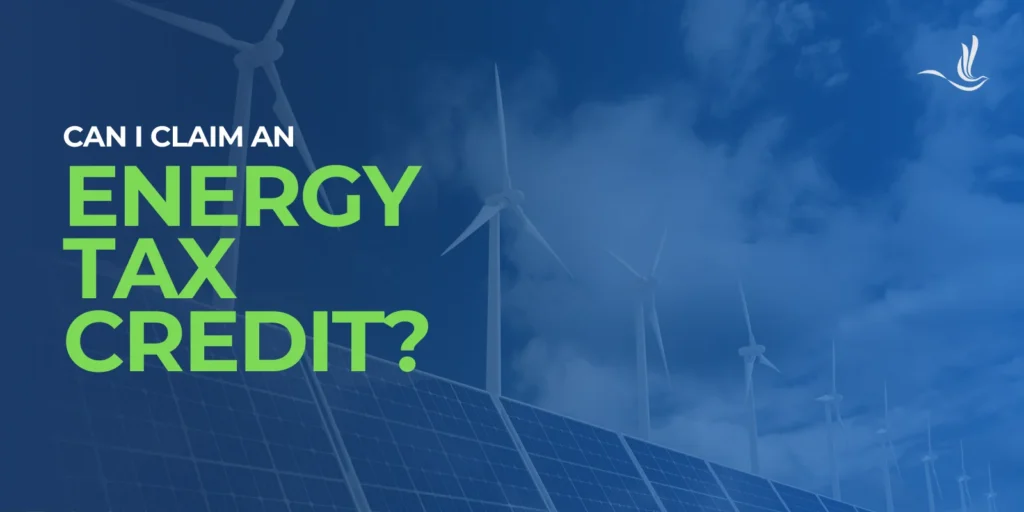
Amid growing concerns over climate change, the promotion of sustainable energy practices has become paramount. Governments worldwide are increasingly turning to policy measures to incentivize individuals and businesses to adopt renewable energy sources and reduce their carbon footprint. Among these measures, energy tax credits have emerged as a powerful tool to encourage investment in clean energy technologies. Here’s a breakdown of available energy tax credits, including their eligibility requirements and implications for the future of energy sustainability.
Energy Efficient Home Improvement Credit
The energy efficient home improvement credit provides financial assistance to homeowners for eligible upgrades undertaken between 2023 and 2032. Homeowners can receive a maximum credit of $1,200 for general home improvements and up to $2,000 for the installation of heat pumps or biomass stoves or boilers. You can claim the energy efficient home improvement credit by submitting Form 5695, Residential Energy Credits and attaching it to your tax return.
Eligible Projects
You are eligible to receive a tax credit for up to 30% of the expenses incurred on qualified home improvements. Some of these include exterior doors, windows, skylights, insulation, central ACs, water heaters, furnaces, boilers, heat pumps, biomass stoves, biomass boilers, and home energy audits. Although the maximum credit for many of these costs is capped at $1,200, certain upgrades may have additional restrictions or limitations.
For example, the maximum you can claim for a qualifying energy audit is $150 per year. You can claim $250 per exterior door, up to $500. However, insulation has no additional limit outside the total $1,200 cap. Additionally, labor costs do not count toward the credit, unless it’s the cost of installing a heat pump, water heater, biomass stove, or boiler.
Residential Clean Energy Credit
The residential clean energy tax credit, commonly known as the solar tax credit, covers expenses related to equipment and installation of solar projects, biomass fuel, fuel cells, and others. The tax credit stands at 30% of qualifying expenses. However, the actual percentage you can claim depends on the year the system was activated.
- 2017-2019: 30%
- 2020-2021: 26%
- 2022-2032: 30%
- 2033: 26%
- 2034: 22%
Like the energy efficient home improvement credit, the residential clean energy credit is not refundable. This means the credit amount cannot exceed the total amount of taxes you owe. Unlike the energy efficient home improvement credit, the residential clean energy credit can carry forward to the following year. In other words, any unused portion of the credit can reduce your tax bill in the next tax year. To claim this credit, you can file Form 5695 with your tax return.
Eligible Projects
The IRS has laid out specific eligibility requirements for the residential clean energy credit. First, the project must be in your home in the U.S. This can include a house, houseboat, mobile home, co-op apartment, condo, or manufactured home. However, solar, wind and geothermal projects do not need to be in your primary residence. Second, you must own the system. You are ineligible if it was leased or obtained with a power purchase agreement. You must have placed it in service by 2017 or later. Earlier projects do not qualify. Finally, it’s important to note that not all costs associated with installation is eligible.
Electric Vehicle Tax Credit
The EV tax credit is a federal tax incentive aimed at encouraging the adoption of electric vehicles (EVs) by reducing the cost for consumers. The eligibility requirements have changed quite a bit in recent years so it’s particularly important to stay updated on any news regarding this tax credit. The credit is worth up to $7,500 for new EVs and up to $4,000 for used ones. In 2024, taxpayers can opt to claim the credit on their tax return with Form 8936 or transfer the credit to their dealership to instantly receive a cash discount equal to the credit value.
Vehicle Eligibility
There are a few requirements the EVs must meet to be eligible for this credit. One involves a price cap. Vans, SUVs and pickup trucks may not have MSRPs over $80,000. Other vehicles cannot have MSRPs over $55,000. Used vehicles have caps of $25,000. Another requirement involves where the EV was finally assembled. To qualify, the EV must have had final assembly in North America. If you’re unsure how to find this out, you check the National Highway Traffic Safety Administration’s VIN database.
Used vehicles have their own unique set of additional requirements. Some include that the car must be at least two years old, it must weigh less than 14,000 pounds, and some battery requirements. The IRS recommends taxpayers visit FuelEconomy.gov for the most updated list of eligible EVs. Also, be sure to confirm with dealerships about vehicles because some trim levels do not qualify for the credit.
Taxpayer Eligibility
Taxpayers are limited to certain modified adjusted gross income (MAGI) to qualify. The income limits for new EVs are:
- Single/Married Filing Separately: $150,000
- Head of Household: $225,000
- Married Filing Jointly: $300,000
The income limits for used EVs are:
- Single/Married Filing Separately: $75,000
- Head of Household: $225,000
- Married Filing Jointly: $300,000
You can use your MAGI from the year the car is delivered or the year prior. This will allow you extra wiggle room to qualify.
Tax Help in 2024
Energy tax credits play a vital role in incentivizing the adoption of renewable energy sources and energy-efficient technologies. By providing financial incentives to individuals and businesses, these credits help overcome barriers to investment in clean energy solutions and accelerate the transition towards a low-carbon future. However, these tax credits can be difficult to understand. Consulting a tax professional can help ease the process of determining eligibility. Optima Tax Relief is the nation’s leading tax resolution firm with over a decade of experience helping taxpayers with tough tax situations.
Contact Us Today for a No-Obligation Free Consultation